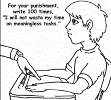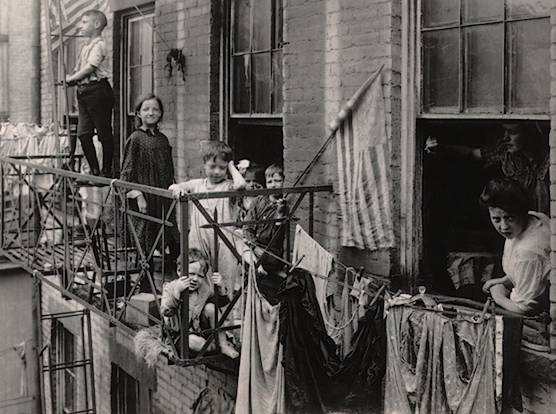 From philosopher Sidney Hook’s autobiographical Out of Step, on his authoritarian schooling in early 20th-century New York:
From philosopher Sidney Hook’s autobiographical Out of Step, on his authoritarian schooling in early 20th-century New York:
“Although the public schools were religiously attended (children feared the wrath of their parents much more than the threats of the truant officer), the classroom experience was far more enjoyable. First of all, the discipline was exacting. Our teachers were little more than martinets. We had to sit erect, with our hands clasped on the edge of the desks or folded behind our back, in absolute silence. Everything was done at command, according to a rigorous and rigid schedule. Even the occasional interesting lesson would be broken off when the allotted time was up, no matter how eager the students were to continue. The slightest infraction of proper conduct—a whisper, a paper dropped on the floor, a shove, a pinch, or the dipping of a girl’s braid in the open inkwell—evoked withering sarcasm, denigrating scolding, and corporal punishment—whacks with the twelve-inch ruler on open extended palms, and whacks with the heavy ferule on the rump. Only the boys got the latter treatment, which was more humiliating than painful. In addition there was staying in after school was over and writing a hundred times some silly sentence like ‘I must not talk to my neighbor.’ Conversely, the ‘good’ students were relentlessly held up to the rest as a model by insensitive teachers, unaware of how hateful ‘teacher’s pets’ were to other children. This happened to me all too often.” (p. 12)
(Much in the tradition of education developed and promoted by Plato, St. Augustine, and Kant.)
And then there was home life:
“The physical conditions under which we lived were quite primitive. On Locust Street where we lived for some years, the toilets were in the yard. In other tenements they were shared with another family. All were railroad flats, heated only by a coal stove and boiler in the kitchen. Gas provided illumination and the most common means of suicide. We froze in winter and fried in summer. Vermin were almost always a problem, and the smell of kerosene pervaded our bedrooms, which had no windows and gave on skylights instead. The public baths were used until bathtubs were installed. The women worked like pack horses; their work was never done. Nor could their husbands have shared their household labors. My father left for work before we arose; he returned from work when we were ready to go to bed. More than once, to the astonishment and amusement of the children, he would fall asleep at the dinner table with the soup spoon in his hand poised in the air” (p. 11).
 [Image source.]
[Image source.]
